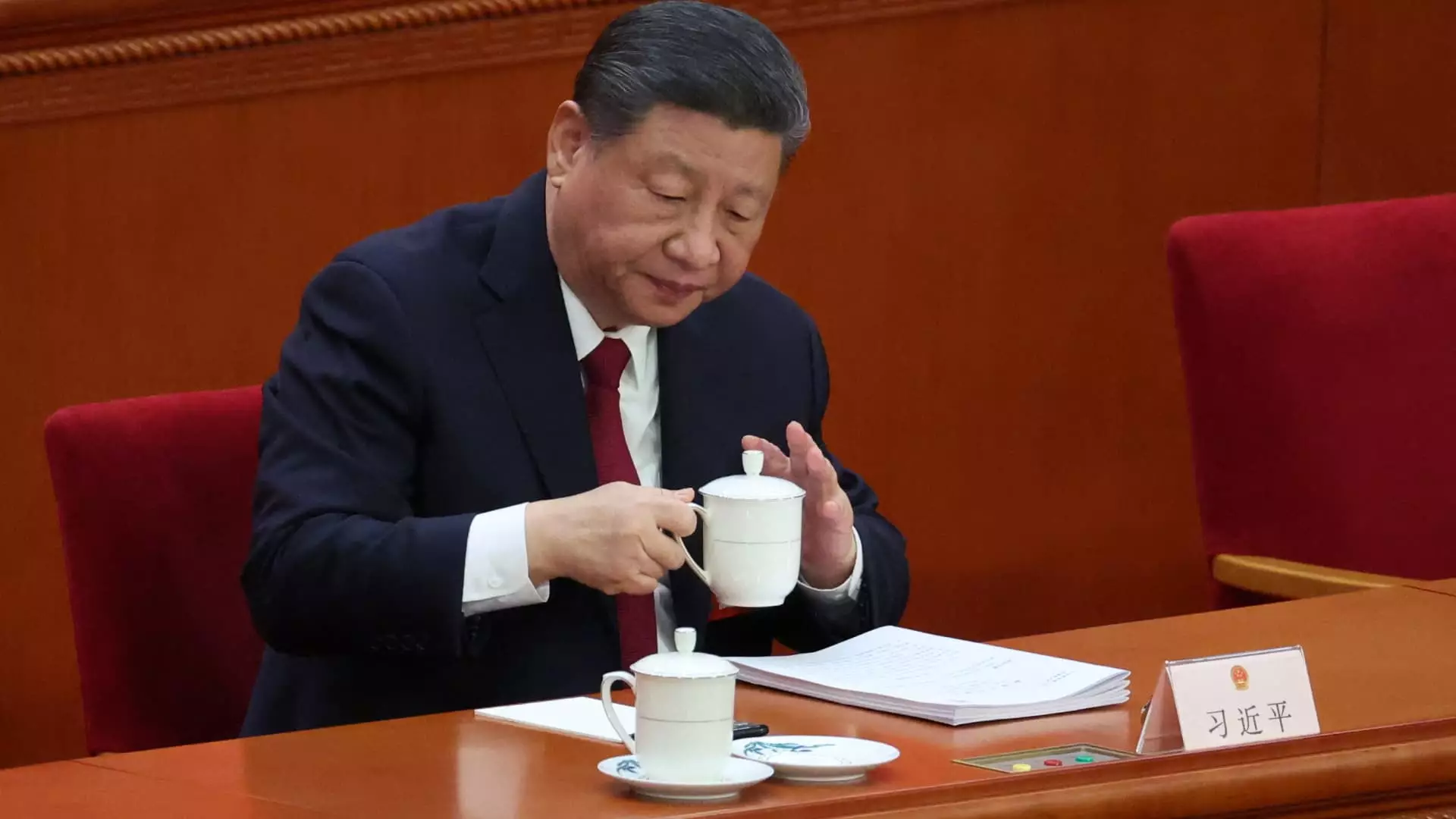As the curtain rises on China’s economic landscape, one is struck by an unsettling paradox: a nation’s burning ambition for growth colliding head-on with harsh external realities. In recent announcements by President Xi Jinping following a Politburo meeting, the focus has shifted squarely to aiding businesses weathering the storm brought about by escalating tensions with Washington. With the stark declaration of impending support for the troubled sectors, it raises a question: Is this genuine aid, or merely a smokescreen for a deeper malaise?
The backdrop of this situation is a swarm of unforeseen external shocks, notably marked by the tit-for-tat tariffs soaring past the 100% mark. This trade war, an ego-fueled conflict between two economic titans, not only threatens China’s illustrious growth aspirations but also emboldens skepticism surrounding the country’s ability to adapt. Wall Street’s alarming downgrades of China’s GDP growth prospects mirror a growing sense of pessimism that, despite the ambitious target of around 5% growth, the golden days of rapid expansion could be fading fast.
Measures that Reflect Uncertainty
In response to these mounting pressures, the Politburo has outlined a plethora of strategies intended to cushion the blow to struggling businesses. Their approach mirrors traditional economic tactics: targeted financial support and potential interest rate reductions. While financial lifelines are essential, the sustainability of such measures is doubtful. Are these interventions merely band-aids on a fracture that requires surgery? As highlighted by industry experts, the focus appears to be a reactionary stance rather than an innovative blueprint for long-term resiliency.
Moreover, the insistence on bolstering middle and lower-income groups lacks clarity in execution. It is easy to issue a call for increased income among the populace, yet without substantial policy frameworks or timely implementation, these proclamations fall short of meaningful change. The discussion of aiding exporters by shifting focus to domestic sales screams of desperation – an instinctual pivot that lacks the strategic foresight necessary in a modern economy desperately striving for self-sufficiency.
A Call for Authentic Innovation
China’s vision for enhancing its technological prowess, prominently featuring artificial intelligence, serves as a testament to its ambition. However, one must critically analyze whether these aspirations will translate into action or remain trapped in bureaucratic lingo. The proposed integration of cutting-edge technologies must not become another hollow promise echoing through the halls of power, where the shiny allure of innovation distracts from addressing deep-seated issues within existing sectors.
Moreover, the anticipated new legislation to better support the private sector brings forth a glaring inconsistency: how can one understate positive shifts while simultaneously managing an economy rife with burdensome governmental oversight? A shift towards transparent and empowering policies for private enterprises is crucial, but without a genuine commitment to reducing bureaucratic entanglements, such laws may well be reduced to mere tokens of goodwill.
The Illusion of Control
As China’s government continues to navigate these turbulent waters, one cannot escape the unsettling realization that they may be wrestling with forces beyond their control. The notion that the government can simply ‘monitor’ and respond to trade shocks while simultaneously orchestrating grand policies may be rooted in a flawed perception of stability. The turbulence spurred by U.S.-China relations is akin to a storm at sea, and the belief that adept maneuvering can weather the storm feels increasingly naive.
Furthermore, the fluctuating responses from financial markets, evidenced by the swift retraction in market confidence following Politburo statements, unveil a disconcerting truth: investors demand action rather than rhetoric. There is an opportunity for China to redefine its strategy, seeking an adaptive engagement rather than clinging to outdated structures. Listening to the market and fostering a climate of innovation could herald a more promising path forward, one not bogged down by bureaucratic inertia.
China stands at a pivotal crossroads, grappling with both external pressures and the urgent need for internal reform. The path ahead must be paved with authenticity, innovation, and a genuine desire to create an environment where businesses, particularly in the private sector, can thrive unencumbered by the weight of governmental constraints. Only then can the nation truly aspire to its lofty growth ambitions amidst an undeniably challenging global landscape.

